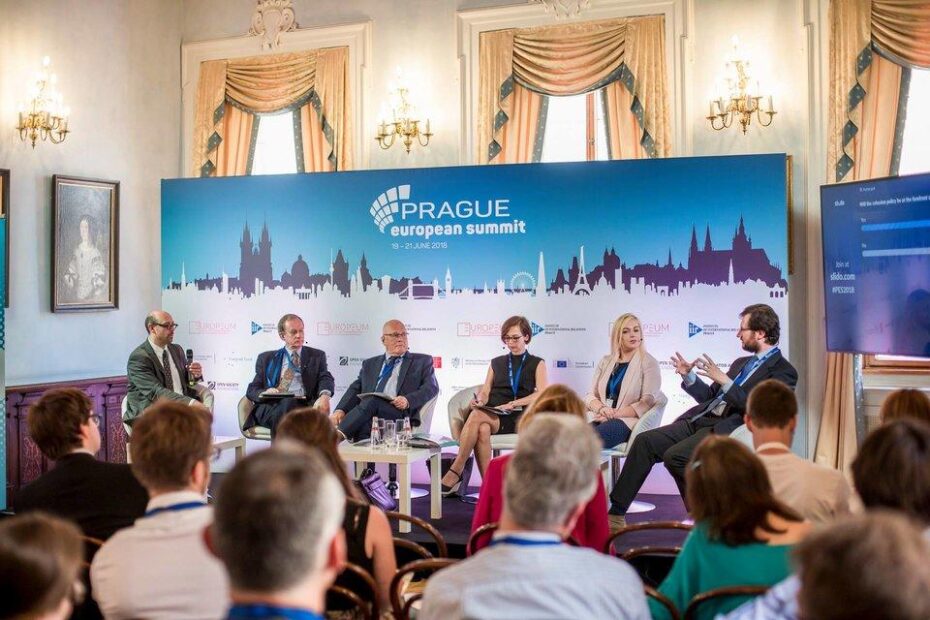Uwaga
Ten artykuł pochodzi z archiwum serwisu WWW i może nie spełniać kryteriów związanych z dostępnością definiowanych przez standard WCAG2.1AA.
The Prague European Summit has been held annually since 2015 within the premises of the Lobkowicz Palace at Prague Castle, one of the most significant cultural sites in the Czech Republic and the only privately owned building in the Prague Castle complex, a UNESCO World Heritage Site.
The fourth Prague European Summit was held on 19-21 June 2018. The sessions will focus on the future of the EU (e.g. its enlargement, cohesion policy, reform, further integration or Brexit), foreign affairs of the Union, European defence cooperation and the European economy. “Pomorskie in the EU” Association representative, coordinator of the Smart Blue Regions project was present at the summit and invited as the panellist in the session of the future of cohesion policy.
The future of the EU Cohesion Policy was explored in a session on 19th Jun, wherein participants expressed hope for a more simple, transparent and efficient program. Improvement of communication with EU citizens about the real effects of EU funds was presented as a top priority, but panellists disagreed as to whether EU funds should be positioned as transfers or as redistribution for the sake of shared prosperity.
Pomorskie region representative presented the main points from the opinion The cost and risk of non-cohesion: The strategic value of cohesion policy for pursuing the Treaty objectives and facing new challenges for European regions presented by Mieczysław Struk, Marshal of Pomorskie Region and adopted by Committee of Regions in March 2018. It concludes with a warning: downgrading or fragmenting the funding of Cohesion Policy would bring major political risks, calling into question the capacity of the EU to fulfil the Treaty objectives of strengthening economic, social and territorial cohesion due to a lack of critical mass of support in many regions, meaning also lower investments in key European objectives.
Moreover, from the regional perspective, it was also underlined that research and innovation strategies (RIS3) for smart specialization should be a determinant of innovative development for the regions and thus must be continued in the post-2020 era. Smart Blue Regions project was presented as a good example where involved regions improve the management and the actual implementation of their smart specialization strategies through transnational cooperation.
